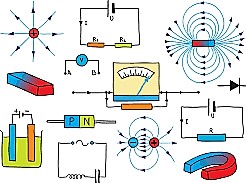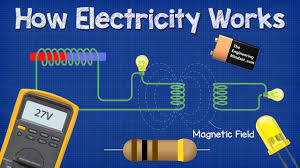- Enseignant: amiraachouak oulha
Introduce the student, in a first step, to all the sectors covered by the field of Science and Technology and in a second step to a range of professions that these sectors lead to. In the same context, this subject introduces the student to the new challenges of sustainable development as well as the new professions that can result from it.
- Enseignant: rabah boubaaya
- Enseignant: yacine tababouchet

The programming module in C language aims to familiarize students with the fundamental concepts of computer programming using the C programming language. Students will learn the basics of language syntax, programming logic, data manipulation, control flow structures, functions, arrays, memory management, and other essential concepts.
- Enseignant: khadidja boudraa
- Enseignant: billel bentouhami
- Enseignant: rafik zouache
- Enseignant: samir benaniba
- Enseignant: ahlam belfar

The elements of the course represent an introduction to the fundamental notions of algebra and analysis that are necessary for students of the common core of science and technology faculties, namely, the notions of matrix and determinant, systems of linear equations, ordinary differential equations, differential and integral calculus of functions with several variables. The mastry of these consepts will enable students to deal with mathematical problems in their advanced studies, as well as, deepen their knowledge to cover more sophisticated mathematics.
- Enseignant: mohamedcharif bounaya

- Enseignant: naima mana

Ce module couvrira les concepts fondamentaux et les lois de l'électricité et du magnétisme, et d'établir une base en électricité (électrostatique, électricinétique) et électromagnétisme en préparation à des cours physique et électronique plus avancés. Il fournit des outils analytiques pour comprendre et analyser les interactions entre les charges, les champs électriques et magnétiques. Il donne aussi des principes essentiels sur les circuits electriques.
- Enseignant: mounira bouabdellah

This practical work explores fundamental concepts of electricity, including Ohm’s Law, electrical circuits. The experiment involves constructing simple series and parallel circuits, measuring voltage, current, and resistance using a multimeter, and verifying theoretical predictions through practical observations. This hands-on approach enhances students’ comprehension of basic electrical principles and provides a foundation for more advanced studies in physics and engineering.
- Enseignant: loubaba lahmar

Les travaux pratiques (TP) en Résistance des Matériaux (RDM) pour les étudiants en formation d'ingénieur permettent de mettre en application les concepts théoriques de la mécanique des matériaux. Ces TP aident à comprendre le comportement des matériaux sous différentes sollicitations (traction, compression, flexion, torsion) et à analyser les contraintes et déformations dans les structures. Les étudiants réalisent des expériences, utilisent des instruments de mesure et interprètent les résultats pour dimensionner des éléments structuraux de manière sûre et efficace. Ces compétences sont essentielles pour leur futur rôle d'ingénieur dans la conception et l'optimisation des structures.
- Enseignant: wafa hamla
- Enseignant: mounira bouabdellah
- Enseignant: mounira bouabdellah
- Enseignant: loubna salik
Ce polycopié de travaux pratiques d’électricité a été élaboré pour la formation des étudiants de première année tronc commun LMD (1ere Année ST). Il est constitué de cinq textes de travaux pratiques qui vont permettre aux étudiants de mieux comprendre l’électricité.
- Enseignant: mokhtar djendel
